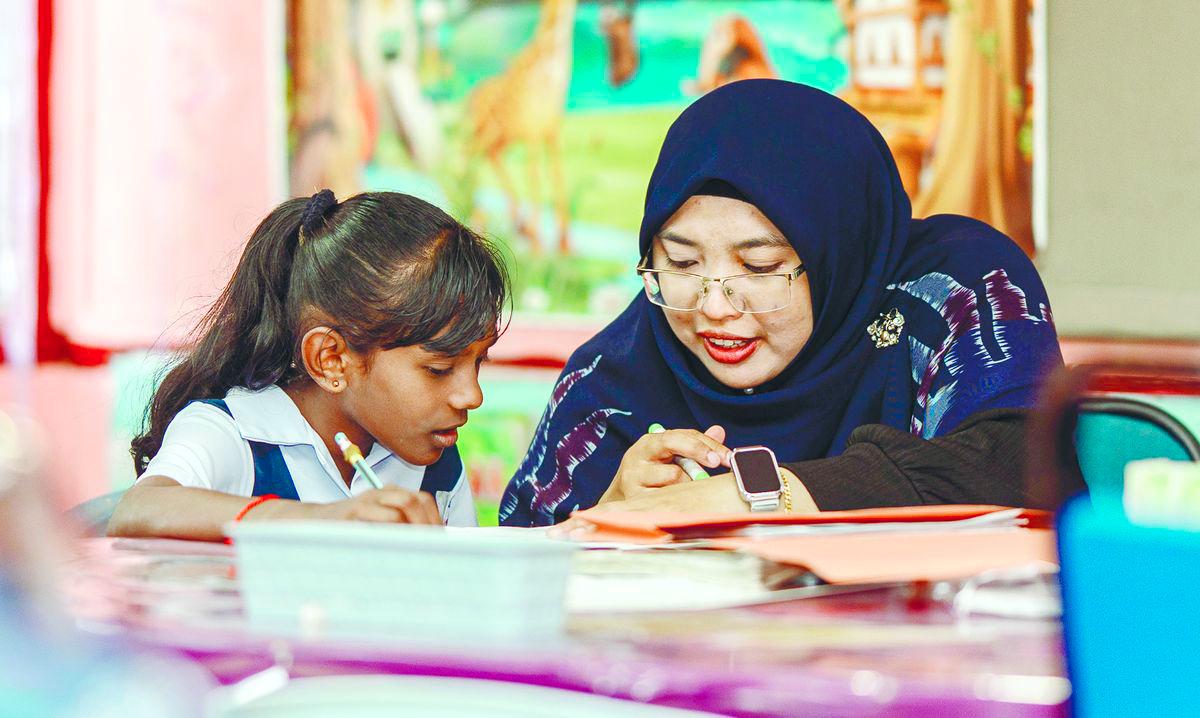PETALING JAYA: Behind every policy and strategic plan under the Anak Kita programme, an initiative by Yayasan Hasanah under its education pillar, are teachers who serve not only as implementers but also as its driving force.
The programme, which aims to strengthen foundational literacy and numeracy as well as reduce dropout rates and improve SPM pass rates, empowers educators to innovate in the classroom while tackling long-standing challenges in the education system.
“Teachers are the heart of this initiative,” said Che Nurul Fadhilah, a teacher at SK Seksyen 24 in Selangor.
“A child who cannot read today might one day become a leader, we must believe that.”
That belief forms the foundation of how the programme operates and equips teachers to identify learning gaps, tailor their lessons and provide emotional support, particularly for students at risk of falling behind.
At SK Senggarang in Johor, Zaiha Nabiha sees her role as more than just a teacher.
“I’m a mentor to my students, especially those who have been left behind. Sometimes, we are the only ones who believe in them.”
Mohd Zani from SK Taman Damansara Aliff underscores the importance of flexibility in
the classroom.
“Every day, I observe my students’ moods and behaviour. My method changes based on what they need that day. That’s how you reach them.”
The programme also gives teachers the autonomy to adapt their approaches to suit their students’ unique needs.
“This programme gave me the confidence to try new methods,” said Weltiana, a teacher at SK Karakit Banggi, a remote school in Sabah.
“We are no longer in the ‘chalk and talk’ era. Students today learn through visuals, technology and hands-on experience. Anak Kita helps us bridge that shift,” said Hamidah from SK Peserai, Johor.
However, teachers often face irregular student attendance, limited resources and administrative burdens.
“Some of my students come to school unmotivated and can’t concentrate. On top of that, we spend a lot of time on documentation, which reduces the attention we can give to students who need extra help,” said Weltiana.
Another pressing concern is the lack of parental involvement.
“Without parents realising how important school attendance is, our work gets harder,” said Mohd Zani.
Zaiha echoed this sentiment, highlighting how some students receive minimal support at home and depend entirely on their teachers for motivation.
“Sometimes, we are their only source of encouragement.”
Under the Anak Kita programme, educators go beyond delivering academic content – they nurture values, build resilience and instil confidence.
The programme also places strong emphasis on emotional well-being.
“Emotional support from our school community also makes a huge difference. When teachers are supported, we can give our best to students,” said Weltiana.
Ultimately, the Anak Kita programme represents a whole-of-nation approach.
While teachers are on the frontlines, the programme’s success depends on the collaboration between educators, parents, policymakers and the broader community.
We shouldn’t wait for Teacher’s Day to recognise those who quietly shape lives every day.
Behind every child who can now read, count, or simply feel seen and valued, stands a teacher who never stopped believing.









